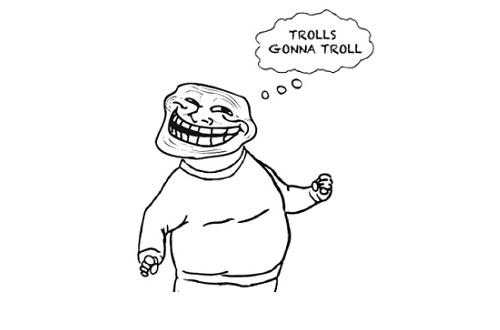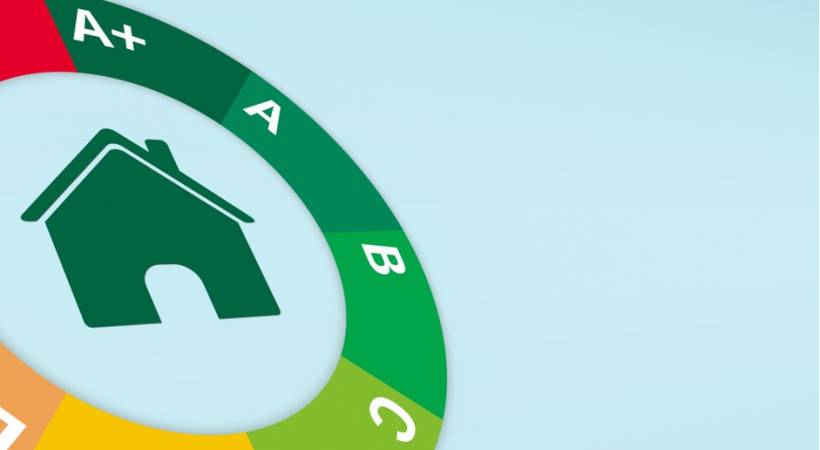Trolls Dominate Online Discussions, Future of the Internet Not Great (Research)

Internet trolls used to be largely harmless online troublemakers. Now they dominate online discussions on Tumblr, Twitter, Facebook, comment section of sites and dozens of other online venues. The result of this ubiquitous dominance is that the future of the internet doesn’t look so bright.
According to a recent Pew Research Center study, which posed one significant question to 1,537 academics, government leaders, tech experts, and so on, many experts said they fear uncivil and manipulative behaviors on the internet will persist–and may even get worse.
The question Pew asked was: “In the next decade, will public discourse online become more or less shaped by bad actors, harassment, trolls, and an overall tone of griping, distrust, and disgust?”
Forty-two percent of respondents said they expect the web to stay as it is now, which honestly isn’t great. Thirty-nine percent expect it to get worse. This dire state of things will lead to a splintering of social media into Artificial Intelligence (AI)-patrolled and regulated ‘safe spaces’ separated from free-for-all zones. Some experts worry this will ultimately hurt the open exchange of ideas and compromise privacy.
Pew notes that modern life revolves around a global social network powered by the internet, with its status updates, news feeds, comment chains, political advocacy, omnipresent reviews, rankings and ratings. Those who dominate this global ecosystem of social interaction inevitably have the power.
“Unfortunately, most people are easily manipulated by fear,” David Wuertele, software engineer at Tesla Motors told Pew. “Donald Trump’s success is a testament to this fact. Negative activities on the internet will exploit those fears, and disproportionate responses will also attempt to exploit those fears. Soon, everyone will have to take off their shoes and endure a cavity search before boarding the internet.”
Why Trolling Is So Prevalent Today

Internet trolls, by definition, are disruptive, combative internet outrage-mongers who are often unsavory with their provocative or offensive online posts designed to sows discord and upset.
The common assumption is that trolls are reprehensible people who are different from the rest of us, which allows us to summarily dismiss them and their behavior. But, research from Stanford University and Cornell University suggests otherwise. The Stanford-Cornell research offers evidence that, under the right circumstances, anyone can become a troll, and there may not be much we can do to prevent it.
"We wanted to understand why trolling is so prevalent today," said Justin Cheng, a computer science researcher at Stanford and lead author of the research paper. "While the common knowledge is that trolls are particularly sociopathic individuals that occasionally appear in conversations, is it really just these people who are trolling others?"
Relying on social psychology research methods, Cheng et al investigated whether trolling behavior is an innate characteristic or if situational factors can influence people to act like trolls. The researchers were able to hone in on simple factors that make the average person more likely to troll through a combination of data analysis, experimentation and machine learning.
This finding that under the right circumstances anyone can become a troll seems to corroborate the Pew study that concluded that online discourse will stay bad because to troll is human; trolling is just the latest example of the many ways humans have exercised social vitriol for millennia.
"It's a spiral of negativity," explained Jure Leskovec, associate professor of computer science at Stanford and senior author of the Stanford-Cornell research paper. "Just one person waking up cranky can create a spark and, because of discussion context and voting, these sparks can spiral out into cascades of bad behavior. Bad conversations lead to bad conversations. People who get down-voted come back more, comment more and comment even worse."
How Can We Fight Back Against Trolls?
Most experts see anonymity as an element that enables bad behavior and facilitates “uncivil discourse” in shared online spaces. If you run a website or manage an online forum, purging of user anonymity is seen as a possibly solution that may help create a more open and inclusive online environment. But, purging anonymity raises privacy concerns that can have serious repercussions in real life.
Another option would be oversight and community moderation of online discussion. But this too comes with a cost. Greater regulation of speech and technological solutions to curb harassment and trolling will result in more surveillance, censorship and cloistered communities. Experts worry this will change people’s sharing behaviors online, limit exposure to diverse ideas and challenge freedom.
Judith Donath of Harvard University’s Berkman Center, author of “The Social Machine: Designs for Living Online,” offers another solution for online platforms to manage trolls:
“We need systems that support pseudonymity: locally persistent identities. Persistence provides accountability: people are responsible for their words. Locality protects privacy: people can participate in discussions without concern that their government, employer, insurance company, marketers, etc., are listening in (so if they are, they cannot connect the pseudonymous discourse to the actual person).”
If you've been a victim of online harassment, slander, character assassination, intimidation and or defamation, you may have tried to reason with the trolls, be nice to them or virtually shout back at them only to realize it probably is not worth it. You can't really win an argument with a troll.
So, what can you do if you are a victim of online trolling?
Sometimes we need to vent. No deep breathing exercises or meditation—just straight-up getting it off your chest. In this case, talk to a friend. Don’t feed the trolls by arguing with them. Talking to a friend can help ease the sting. And contrary to what many believe, it is possible to punish trolls off line using existing provisions of the law. Web users mustn’t always suffer in silence.
Ultimately, though, understanding ourselves, valuing common human decency and self-regulating are among the best solutions to the complex trolling menace, as Michael Bernstein, assistant professor of computer science at Stanford and co-author of the Stanford-Cornell study suggests.
"At the end of the day, what this research is really suggesting is that it's us who are causing these breakdowns in discussion," said Bernstein. "A lot of news sites have removed their comments systems because they think it's counter to actual debate and discussion. Understanding our own best and worst selves here is key to bringing those back."
See Also: How to Protect Your Privacy and Data When Using Public Wi-Fi.







![6 Content Creation Ideas for Aspiring Student Influencers [node:title]](/sites/default/files/styles/front_featured__front_/public/smiley%20woman%20with%20ring%20light%20content%20creator%20influencing%20ideas.jpeg?itok=xZW21mJh)
![The Jobs Artificial Intelligence Will Take Over First [node:title]](/sites/default/files/styles/front_featured__front_/public/adult-person-interacting-with-futuristic-delivery-robot-jobs-ai-will-take-over.jpeg?itok=EeXB8aVo)




























